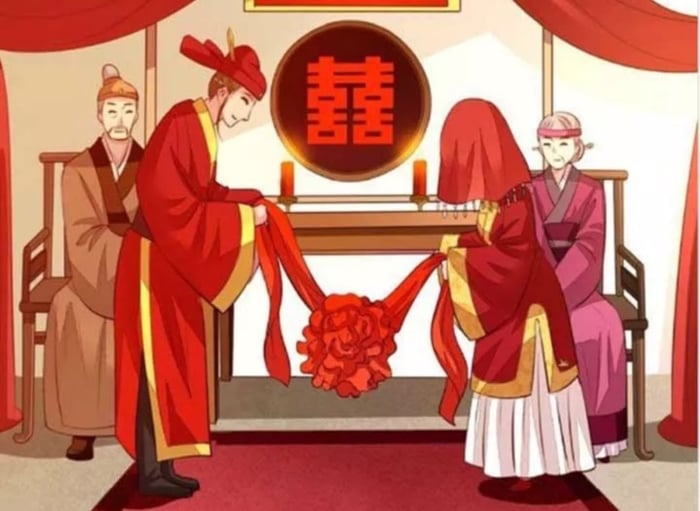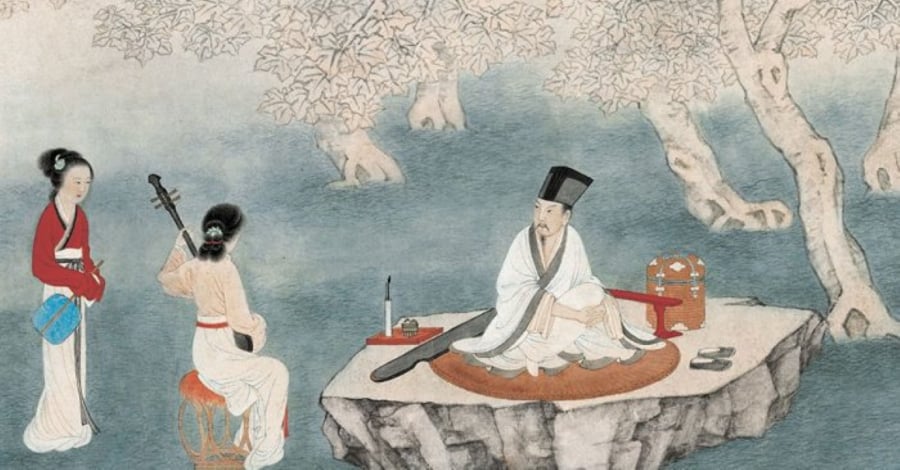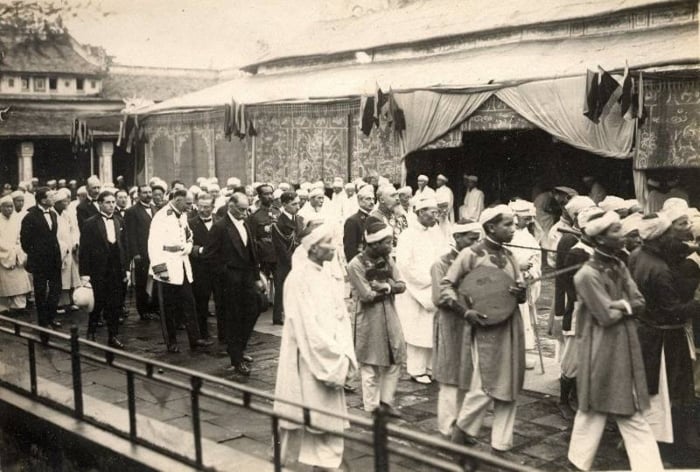The saying, “Don’t gift an umbrella at a wedding, don’t gift medicine when wishing longevity, and don’t wear heavy makeup at a funeral” holds significant cultural and superstitious value. But what do these sayings truly mean?
1. What’s the meaning behind “Don’t gift an umbrella at a wedding”?
Whether in rural or urban areas, weddings are momentous occasions for individuals and their families, marking a new chapter in life. It is customary for well-wishers to bring gifts as a token of their happiness and support for the newlywed couple.

Gifting an umbrella to a newly married couple is believed to bring bad luck and signify impending separation. (Illustrative image)
However, one item that should never be given as a gift at a wedding is an umbrella. In the Chinese language, the word for “umbrella” (sǎn) sounds similar to the word “separate” or “part ways” (sàn). Thus, giving an umbrella as a gift is considered a curse, symbolizing the couple’s future separation.
2. Why is it considered inappropriate to gift medicine when wishing someone a long life?
When celebrating someone’s longevity, it is customary to bring gifts as a token of your well-wishes. However, one item that you should avoid gifting is medicine or cigarettes.

Gifting medicine to elders on their birthday or when wishing them a long life is considered impolite. (Illustrative image)
While it may seem like a thoughtful gift to promote health, doing so on their special day implies that you wish for their swift departure from this world. This gesture is considered extremely impolite and offensive.
3. Why is heavy makeup frowned upon at funerals?
Our ancestors advised against wearing heavy makeup during funerals. Typically, makeup is associated with happiness and celebrations, such as weddings or parties.

Funerals are solemn occasions, and wearing heavy makeup may be seen as a sign of disrespect or insensitivity to the grieving family.
Applying heavy makeup at a funeral can be seen as disrespectful and insensitive to the grieving family. It may also give the impression that you are happy about the death of the deceased, which is certainly not the message you want to convey.
These sayings and superstitions are deeply rooted in cultural beliefs and traditions. While some may find them outdated, they continue to hold significance for many, especially the older generation.
Note: This article is for reference only and does not represent any personal beliefs or opinions.
Does Carrying a Knife and Garlic During the ‘Ghost Month’ Keep Evil Spirits at Bay? Unraveling the Truth Behind This Long-Standing Practice
The seventh lunar month is often associated with ghostly hauntings and supernatural fears. It is believed that the gates of hell open during this period, releasing spirits and ghosts upon the earth. This month is considered inauspicious and many take extra precautions to ward off any potential paranormal encounters.
Why Do Bridesmaids Have to Be Unmarried?
Bridesmaids are the unsung heroes of any wedding ceremony. They are the loyal troupe of women who stand by the bride’s side, offering unwavering support and ensuring the big day runs smoothly. With their infectious enthusiasm and attentive care, they create a warm and welcoming atmosphere, enhancing the joy and celebration of the occasion. Their role is integral to the success of the wedding, as they gracefully manage the myriad of tasks that come with hosting such a momentous event.





































